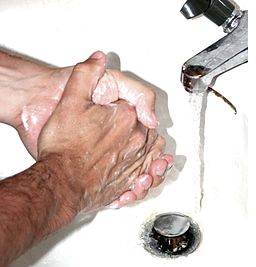Identify Signs Of Obsessive-Compulsive Disorder
 It is estimated that more than 2.2 million Americans suffer from obsessive-compulsive disorder (OCD), according to the National Institute of Mental Health.
It is estimated that more than 2.2 million Americans suffer from obsessive-compulsive disorder (OCD), according to the National Institute of Mental Health.
The American Psychiatric Association recently reclassified its definition of OCD in the revised version of the Diagnostic and Statistical Manual of Mental Disorders (DSM-5).
A New Chapter for OCD
In the DSM-5, the chapter on anxiety disorders no longer includes OCD. Instead there is a new chapter in the DSM-5 specifically outlining “Obsessive-Compulsive and Related Disorders.”
The new chapter reflects increasing evidence that obsessive-compulsive and other mental illnesses are more closely related to one another. Hoarding disorder, skin picking disorder (excoriation) and hair pulling disorder (trichotillomania) are now considered obsessive-compulsive disorders along with substance-/medication-induced obsessive-compulsive and related disorder and obsessive-compulsive and related disorder due to another medical condition.
OCD Defined
OCD is a mental illness in which sufferers have persistent, ongoing obsessions that interfere with daily life. Sufferers have “rituals” to help control the anxiety that their obsessions produce. For example, if a person is obsessed with germs, the “ritual” may be the need to wash his or her hands over and over. Other common “rituals” include the need to touch things in a particular sequence and the need to count things over and over.
Signs of OCD
Some common signs of obsessive-compulsive disorder include:
- • Experiencing repeated thoughts about many different things, such as fear of germs, dirt or intruders
- • Conducting the same rituals over and over, such as washing hands, locking and unlocking doors or repeating the same steps again and again
- • Inability to control these unwanted behaviors or thoughts
- • Obtaining brief relief through the use of rituals from the anxiety these unwanted thoughts cause
It is also estimated that if a person spends at least one hour a day on these rituals, he or she may in fact have OCD.
Sources: American Psychiatric Association and National Institute of Mental Health
 Eating Disorder Self Test. Take the EAT-26 self test to see if you might have eating disorder symptoms that might require professional evaluation. All answers are confidential.
Eating Disorder Self Test. Take the EAT-26 self test to see if you might have eating disorder symptoms that might require professional evaluation. All answers are confidential.